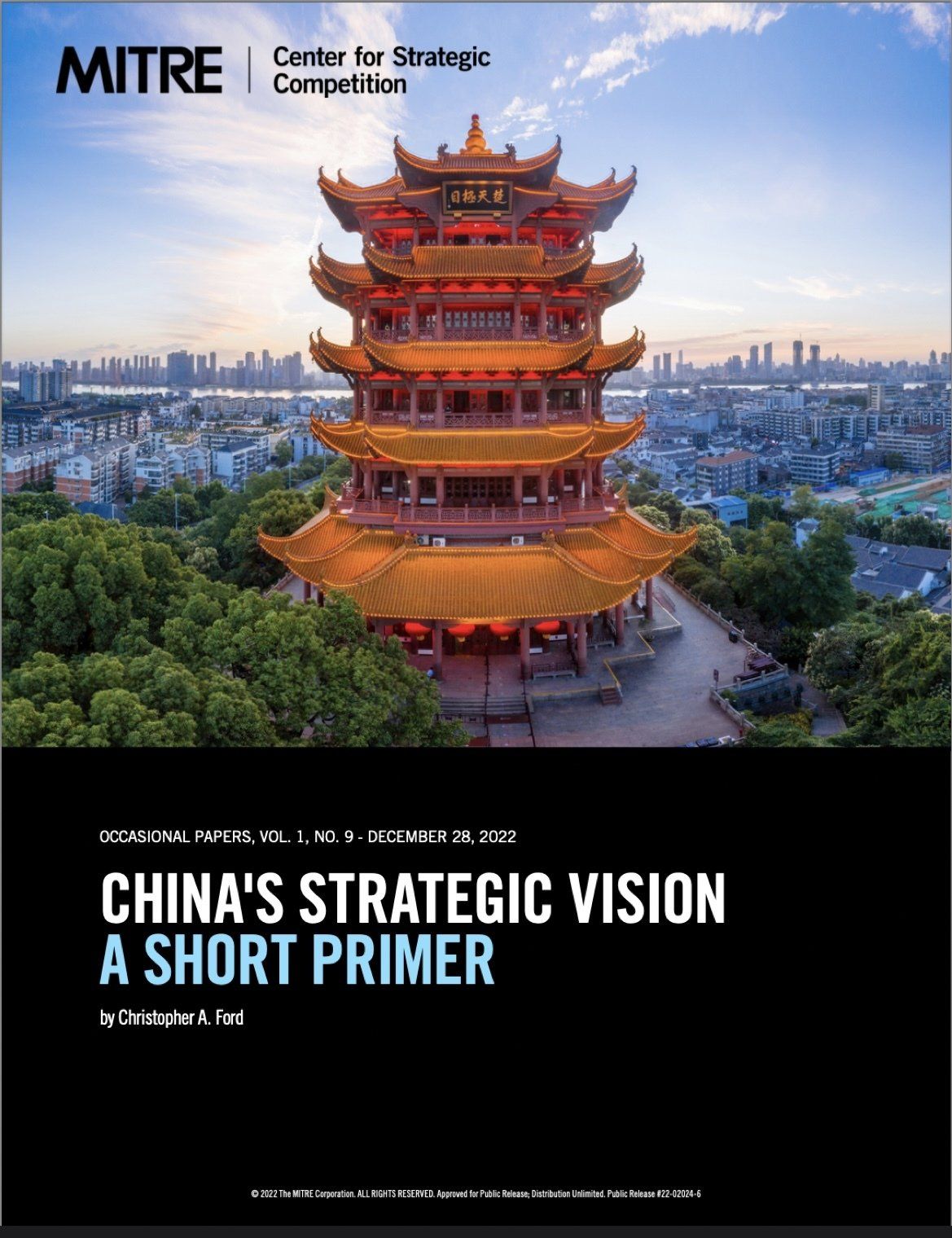China's Strategic Vision: A Short Primer
Closing out its first annual volume of Occasional Papers, MITRE's Center for Strategic Competition (CSC) published its ninth Occasional Paper on December 28, 2022. This paper is a shorter, more accessible summary of the first three "China's Strategic Vision" papers (vol. 1, nos. 1-3) published by the Center, which may be found here, here, and here. This summary paper (vol. 1, no. 9) can be found here, or can be downloaded by using the button below.

Executive Summary:
This paper summarizes points made in the papers published by MITRE’s Center for Strategic Competition on “China’s Strategic Vision.” The Chinese Communist Party (CCP) regime has a distinctive worldview built on: (1) a “comprehensive” conception of national power; (2) a monist theory of political authority and systemic dominance by the entity possessing “Comprehensive National Power” (CNP) in the greatest degree; and (3) an ideology of national grievance that drives China to wish to avenge supposed past wrongs by bringing about a “rejuvenation” that places Beijing “once more” in a dominant role in the world system.
China sees economics, military capabilities, political clout, diplomatic savvy, technological advantage, natural resources, geography, moral stature, and socio-cultural factors as aggregating into CNP and expects that the state with the greatest CNP will set the rules for the world system. Through “national rejuvenation,” China aims to avenge its “Century of Humiliation” and become that dominant state.
The key ingredient of CNP, as the CCP sees it, is economic growth, which is essential to returning China to its status as the world’s rule-setting central player. To this end, it has focused on acquiring cutting-edge technology as a key to winning back China’s position at the center of the world. The acquisition of more and more military power is also central to “national rejuvenation,” as high-technology military forces are “a benchmark of modernity and global status.” Chinese officials believe military capabilities develop through “Revolutions in Military Affairs” through which the state with the most advanced technology acquires advantages over all others and can leverage these advantages for geopolitical gain; China intends to gain such advantages for itself in the future. As part of the “narrative warfare” component of the Party’s vision of creating a Sinocentric world, Beijing has also become increasingly aggressive in using coercion to punish those who say things the CCP dislikes.
Indeed, the CCP has come to define China’s “national rejuvenation” as including the construction of a Sinocentric regional order well beyond the People’s Republic of China’s frontiers. In fact, this vision places China at the center of a network of global physical and technological infrastructure, as well as political, economic, and security influence. As China’s power has grown, the country has been more willing to speak of the CCP’s system of governance as one that itself provides a model for the rest of the world. Officials envision what Xi Jinping has termed “a new type of international relations,” in which China has surpassed the United States as the world’s “indispensable power” and all others adopt a deferential position regarding China’s global leadership. This desired end state bears a striking resemblance to the relationships that ancient China traditionally sought to create with the rest of the world.









